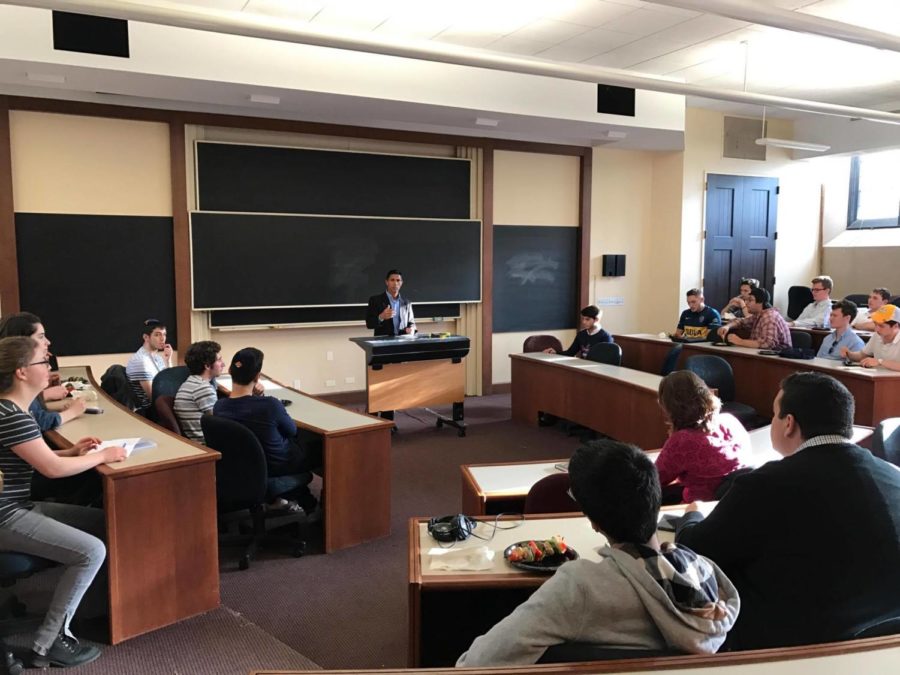This past Thursday, the University of Chicago Alliance with Israel (UCAI) hosted an event featuring the first Bedouin Israeli diplomat to serve in the Israeli government.
Ishmael Khaldi was born in a Bedouin village near Haifa and began working for the Israeli Foreign Ministry in 2004. In 2009, he was appointed policy advisor to Avigdor Lieberman, then minister of foreign affairs.
“As the first Bedouin Israeli diplomat, he has a fascinating story to tell about his experiences,” Alexander Glaubach, a first-year and president of UCAI, told The Maroon. “We hoped our event would accomplish the promotion of open dialogue of Israeli politics, one of the three portions of our mission statement, on campus.”
The Bedouin are a group of nomadic Arab ethnic groups in the Middle East and North Africa. Throughout the event, Khaldi spoke about Bedouin history in Israel and expressed dissatisfaction with the rate at which the Bedouin people are integrating into Israeli society. “In order to more easily integrate them into Israeli society there are two keys,” Khaldi said. “The first is education, and the second is employment.”
He also addressed the Palestinian conflict and the issues surrounding a two-state solution.
“The majority of Israelis and the Israeli government want a two-state solution, but there’s no one to give a state to,” Khaldi said. “Israel has repeatedly made attempts to negotiate and reach a deal, but there is no one to make a deal with. The main issue at hand is Palestinian leadership. Mahmoud Abbas is a puppet, without power and control over his people.”
Khaldi is currently focusing his work on the issues surrounding the Boycott, Divestment and Sanctions (BDS) movement. BDS is a global effort to put political and economic pressure on Israel to agree to the goals of the movement: full equality for Arab-Palestinian citizens of Israel, the end of Israel’s occupation and colonization of Palestinian land and the Golan Heights, and recognition of the right of return of Palestinian refugees. Khaldi assured the audience that BDS is “not at all a problem. It is just some noise caused by small groups of people, mostly on college campuses.”
UCAI aims to be an inclusive, proactive, pro-Israel voice that encourages an open dialogue about Israeli history, culture, and politics on the University campus.
“I started UCAI in January with the goal of providing a refuge for those who wanted open dialogue about Israel and didn’t think that the current campus climate provided that,” Glaubach said. “We hope to attract a broader range of students across various backgrounds in the hopes of educating them about Israel’s history, culture, and politics.”









